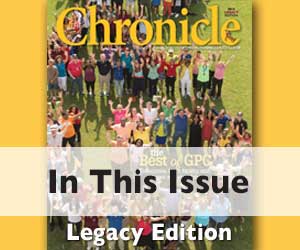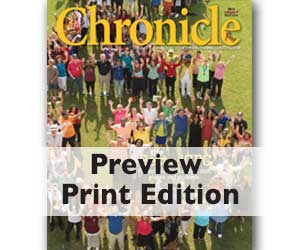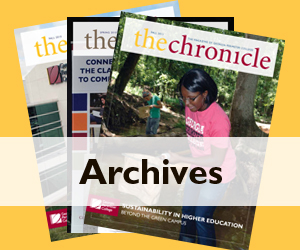
Cutline: Dr. Valerie Dotson, professor of English at GPC, is a sought-after presenter at libraries, schools and churches. (photo by Leita Cowart)
by Stell Simonton
Dr. Valerie Dotson steps to the microphone. In a soft Southern voice, she begins to talk about the work of poet Natasha Trethewey. She explains a four-line epigraph from Trethewey’s book “Native Guard.”
Then Dotson, in a rich, full voice, sings the song from which the lines are taken.
She performs “Wayfaring Stranger,” first in the style of an Appalachian folk song and then as an African-American spiritual.
Dotson, professor of English at the Clarkston Campus of Georgia Perimeter College, specializes in African-American literature. Her presentation at GPC’s 2014 Georgia Women’s Conference illustrated the way she mixes teaching and performing. At the conference, she used a musical lens to look at Trethewey’s poetry. She also weaves performance into her freshman composition classes.
“There’s such a nexus between African-American music and literature,” Dotson says. Performing the music helps students quickly understand the relationship between the two and creates a cultural context.
Students may not be familiar with some forms of African-American music—the blues or jazz, for example. However, when they hear it sung, they more easily feel its rhythms in the literature they’re studying, says Dotson.
Dotson, recipient of the 2010 NISOD (National Institute for Staff and Organizational Development )Teaching Excellence Award, is deeply committed to her profession.
“I love interacting with students, and I love learning from students.” she says.
She also loves the arts and performing.
“It keeps me interested and keeps me loving it,” she says.
Keyanna Hardy, a second-year student at GPC, has taken two of Dotson’s African-American literature classes.
“She allows you to see things at a deeper level … yourself and the culture you come from,” Hardy says.
Drawing students into collaborations also is a hallmark of Dotson’s. For the 2015 Georgia Women’s Conference in March, Dotson, Hardy and student Brianna Heath developed a presentation exploring how the bodies of African-American women are presented in literature and the arts.
Dotson involves her classes in reader’s theater, guiding her students to work in groups to write a performance piece synthesizing what they’ve learned. The work requires academic rigor, demanding the same documentation of sources an academic paper would require, but the final product is different. Dotson introduced the technique to her classes after taking a summer workshop in reader’s theater.
Dotson also directed and sang in a GPC Reads presentation, “Power, Praise and Politics,”which illustrated the role of churches — and gospel music — in strengthening the civil rights movement. Students, faculty and the St. Paul AME Voices of Hope choir sang as part of the event, which explored themes from the book “Praying for Sheetrock,” by Melissa Fay Greene.
“We were really trying to give some context for understanding the book,” Dotson says.
Dotson is a sought-after presenter at libraries, schools and churches. She also plays in a jazz band, Neshama, and is the featured singer/songwriter on the CD “Soul Sessions: Relationship Advice and Songs for the Soul,” with clinical psychologist Dr. Alduan Tartt.
Dotson grew up in Jackson, Miss., and attended Tougaloo College. “I always wanted to be a teacher,” she says. She received her Ph.D. in English from the University of North Carolina at Chapel Hill with a major in African American literature. Her dissertation focused on Frank Yerby, known as the first best-selling African American novelist. His fiction often was set in the antebellum South.
Dotson is married to Robert Dotson III, and they have two children, Matthew, 14, and Blythe, 7.
At GPC, Dotson has found a nurturing atmosphere that supports her focus on teaching. A two-year college allows that, she says.
“This was the perfect place to land,” she says. “Teaching and scholarship come together.







No Comments on “Dr. Valerie Dotson: Weaving Performance into Teaching”